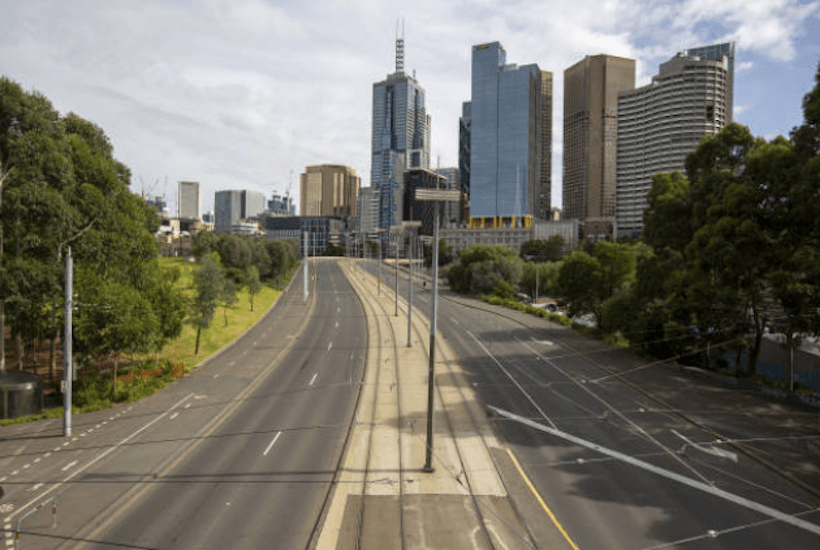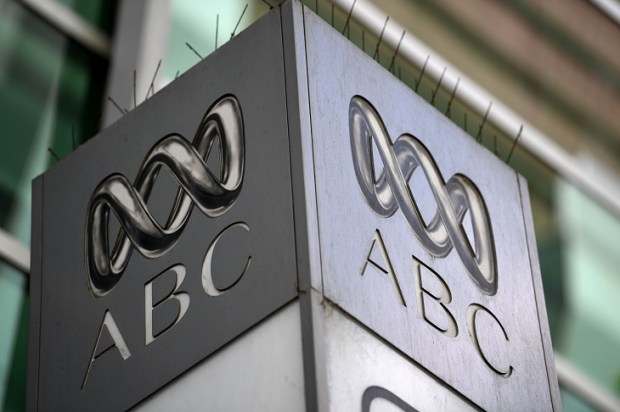Australia needs strength to survive the coronavirus, but many policies designed to manage the spread may be counterproductively weakening our social, political and economic systems.
Last week two images from Bondi shocked and appalled the nation.
The first image that caused a stir was a typically Australian scene of carefree Bondi bathers. At any other time this would be unremarkable, but when social distancing and mass house arrest is normal going for a dip gets lambasted in the media as errant.
In the wake of scenes such as this, a mass lockdown of all non-essential services such as bars and cafes was instituted.
The next image that channeled the collective ire was one of people desperately lining up at the Centrelink office after the lockdown resulted in mass closure of businesses and unemployment.
Young service workers bore the brunt of this lockdown, the very people who are least likely to require a hospital bed if they contract this virus.
The cost-benefit analysis of the policies coming out of federal and state governments are looking pretty bleak for the youth of Australia. Loss of employment, loss of freedom, huge amounts of debt from all the spending that will inevitably fall on their future shoulders, and a recession to rival that of the Great Depression to boot.
The orthodoxy is that these measures are required to slow the transmission so the health system won’t be overwhelmed, however, this view is reductive and doesn’t take into account the other systems that are quickly buckling under the strain of government policy.
There is no easy solution to this crisis. Policymakers are trying to protect the vulnerable, which of cause should be the paramount concern considering they will pay the most tragic price if they are exposed to this virus. However, it is worth looking at the policy response holistically. We need action that protects not just on the elderly and vulnerable, but also on the young and healthy. We need policy that preserves not just the health system, but all our other vital networks as well.
Just as the human immune system loses strength when deprived of muscle mass from exercise, minerals from nutritious food, or vitamin D from the sun, stagnation weakens our social networks, freedoms, and economies as well.
Our support networks are fraying as we isolate from our community. Never has there been a crisis which required our touch points to dissolve. The shut down of gatherings and non-essential services has seen places of worship closed and our national religion (sport) stopped. The Saint Bartholomew church in London that provided solace during the Great Fire, the Black Death, and the Blitz has closed due to coronavirus. Humans are social creatures, even the most introverted needs a community and for the extraverted, the deprivation would be a reason for civil disobedience.
Our political systems are becoming more draconian with each day. A crisis, it is always argued, requires that we trade in our freedoms as a temporary necessity, but alas such measures (such as the federal grab of taxation powers from the states during World War II) always seem to stick well after their expiration date. The longer we marinate in this heavy-handed political environment, the more acceptable it will become.
Finally, the longer people are out of employment and businesses are unable to open the more protracted the recovery. Our economy is simply a mirror that reflects the flourishing of people. Recessions produce mass unemployment which leads to all kinds of human suffering from loss of purpose to deprivation of warm shelter or nutritious food all which affect health and wellbeing.
This virus is here to stay, it is not a question of if most of us will get it but when. We either face it in a relative position of strength or later when our systems could be beyond compare.
The policies which are expanding government power and regulation need a sunset clause, and preferably sooner rather than later. During the remaining lockdown time we can set up additional protections to secure those that are at risk and funnel extra money to stocking up on tests and preparing hospitals. However, ultimately the healthy would be better served by keeping calm, carrying on and washing their hands.
It is always better to tackle a difficulty from a position of strength. The longer we lockdown our social, political and economic systems the more likely irreparable damage becomes.
Dara Macdonald is a Research Fellow\at the Institute of Public Affairs. Join as a member at www.ipa.org.au.
Got something to add? Join the discussion and comment below.
Got something to add? Join the discussion and comment below.
Get 10 issues for just $10
Subscribe to The Spectator Australia today for the next 10 magazine issues, plus full online access, for just $10.


























Comments
Don't miss out
Join the conversation with other Spectator Australia readers. Subscribe to leave a comment.
SUBSCRIBEAlready a subscriber? Log in